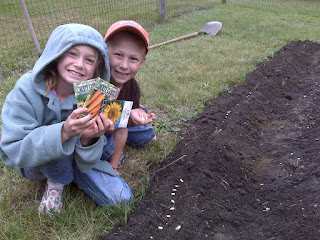Still other seed fell on good soil. It came up and yielded a crop, a hundred times more than was sown.We have thus far learned that there are three categories of people whose hearts are characterized by ineffective soil. They are, in the final sense, not Christians in the Bible's sense of the term. Today, we shall look at the silver lining, for there is hope!.
The noble hearted person is described by Jesus as having three characteristics. One is a matter of comprehension, one of retention, and the other of implementation (v. 15). All have to do with the message of the gospel contained in the Word of God.
Jesus begins his concise summary by asserting that they "hear the word." Hearing the word in this sense must be different than hearing in the other two senses. I mean "two senses" because the thorny heart and the shallow (rocky) heart prove to not comprehend the gospel in the final result. They were either naive, misled, or halfhearted. I did not include the heart characterized by the path because it seems to me that the person who rejects the gospel at first sight may indeed understand it. In fact, it is their comprehension that leads to their rejection. For example, think of the rich young ruler (Mt. 19: 16ff ), who turned away from Jesus when he understood what the gospel would require of him. But, by contrast, those who grasp it and embrace it are those who are the fourth type of soil--good soil.
 He continues his description by saying that, not only do they comprehend it, they retain it as well. For the noble hearted, Christianity is not a fad. There is also no justification in believing that Jesus anywhere condones a "fire insurance" gospel--a belief that it's good to have your bases covered just in case there actually is a God. Indeed, Paul warns Timothy to teach perseverance, even in such strong words as these: "If we endure, we will also reign with him; if we deny him, he also will deny us" (2 Tim. 2:12). Please note that this is not a campaign to advocate either salvation by works, or that salvation can be lost once it has been obtained. Clearly, those who are true believers prove themselves by their comprehension, retention, and now lastly, their implementation.
He continues his description by saying that, not only do they comprehend it, they retain it as well. For the noble hearted, Christianity is not a fad. There is also no justification in believing that Jesus anywhere condones a "fire insurance" gospel--a belief that it's good to have your bases covered just in case there actually is a God. Indeed, Paul warns Timothy to teach perseverance, even in such strong words as these: "If we endure, we will also reign with him; if we deny him, he also will deny us" (2 Tim. 2:12). Please note that this is not a campaign to advocate either salvation by works, or that salvation can be lost once it has been obtained. Clearly, those who are true believers prove themselves by their comprehension, retention, and now lastly, their implementation.Jesus taught that noble hearts will be observed producing fruit. They put feet to their faith. They understand and then do. Indeed, the scriptures not only say there will be change in the life of the person--in character, attitudes, actions, etc. (Gal. 5:18ff; Col. 3, Eph. 5:8ff), but our passage today (v. 15) teaches that the change will be lasting change. Liken it, if you will, to the difference between a corn field and an apple orchard. One grows quickly, produces fruit once only. The apple trees, however, grow slower by comparison, yet produce a consistent crop year after year.
I want to end this series with a note from Dr. W. Hendriksen's commentary. In it he concludes the section on the passage this way:
The real lesson of the parable is not grasped unless its clear implication is understood. On the basis of 8:8 (cf. Matt. 13:9, Mark 4:9), that lesson is, "Examine yourself to discover to which group you belong. If you belong to any one of the first three groups, be converted! Not, of course, by power residing in yourself but by God's sovereign grace! Even if you should belong to the fourth group, ask yourself the question, 'Am I sufficiently fruitful?' The parable is therefore really An Exhortation to Self-examination, leading either to Basic Conversion or else to further Sanctification."I hope you have been encouraged to look within your heart. If you feel you have read this series only to discover that your heart is described by one of the first three soils, do not hesitate to contact me. Your heart can change! For the rest of you: keep the faith, keep comprehending, keep retaining it, and keep implementing what you have learned in your life. God bless.














